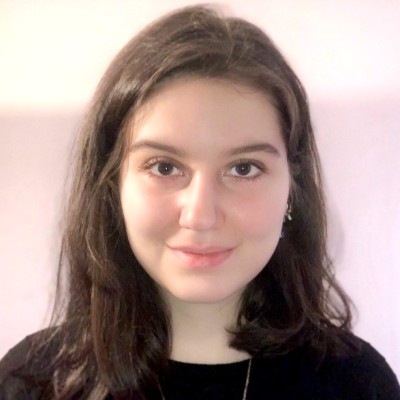MSc (Honours) - Artificial Intelligence (2023-Sept2024) | (Final Classification TBA)
Below is a summary of all the graded coursework and exams I have completed during my MSci degree at X.
MSci (Honours) - Integrated Master of Science, Psychology and Language Sciences (2019-June2023) | (Final Classification TBA)
Below is a summary of all the graded coursework and exams I have completed during my MSci degree at UCL.
2022/23: Fourth Year (Research Pathway) - Master’s Level
- MSci Research Thesis: Neural Reorganisation and Crossmodal Plasticity in the Deaf Auditory Cortex (TBA)
- MSci Thesis (80% weight): (TBA)
- Research Proposal (10% weight): (74)
- Blog Post for research dissemination (10% Weight): (TBA)
- Advanced Statistics with R (72)
- Lab Report using Advanced Statistical Analyses (100% weight): (72)
-
The Brain in Action (TBA)
-
Neuroscience of Mental Health (TBA)
- Deafness, Cognition & Language (70)
- Coursework Essay (100% weight): Plastic Reorganisation in Congenital Deafness: Insights from Experimental Studies (72)
2021/22: Third Year
BSc Thesis: “Influence of Instrumentality, Valence and Receiver’s Uncertainty on Information Sharing” (supervisor: Prof Tali Sharot, Valentina Vellani)
-
Neural Computation: Models of Brain Function (74.90)
-
Final Exam 3h (95% weight): (75)
-
Coursework Essay (5% weight): Critique of Frean (1990): The Upstart Algorithm (74)
-
-
Cognitive Neuroscience (65)
- Research Poster (100% weight): “Do Individuals with ASD exhibit impairments in prospective memory?” (65)
-
Topics in Neurobiology (77)
- Coursework Essay + Questions (100% weight): paper = (77)
-
Introduction to Deep Learning for Speech and Language Processing (75)
- Essay on a Speech DL Task (100% weight): “Two Approaches to Speaker Identification: A Comparison of Methods and Outcomes (75)
-
Brain Stimulation (70)
- Lab Report Proposing a Novel Brain Stimulation Study (100% weight): “Causal Role of the Lip M1 Area in Learning To Perceive New L2 Sounds” (70)
-
Language and Communication in Dementia (81.25)
-
Coursework Essay (75% weight): “Analysis of Language Samples from a Dementia Patient (75)
-
1h long MCQ (25% weight): 100
-
2020/21: Second Year
-
Calculus and Linear Algebra (98.73)
-
Final Exam (85% weight): 100
-
Coursework Problem Sheet (10% weight): 100
-
Average across 8 Weekly Quizzes (5% weight): 97.5
-
-
Intermediate Statistical Methods (88.45) using R + Bayesian Statistics
-
Final Statistics Exam in R (3 hours, 50% weight): 93
-
Coursework Lab Report in R (Secondary Data Analysis + Preregistration): “Need to Belong, Narcissism, Political Affiliation and Subjective Wellbeing” (High 1.1, 77)
-
Average across 14 Weekly Programming Assignments using R (15% weight): 100
-
-
Development of Communication and Cognition (71.40)
-
Coursework Essay: “Social Cognition and Successful Language Development: Joint-Attentional Processes and Lexical Development” (2.1, 63)
-
Coursework Lab Report (on existing data ~COVID-19): “Relationship Between Procedural/Implicit Learning and Second Language Learning” (65)
-
Online Weekly Activities: 100%
-
-
Qualitative and Mixed Research Methods (67.50)
-
Coursework Essay: “Confirmation Bias: The Battles of Quantitative and Qualitative Research Cultures” (High 1.1, 78)
-
Mixed Research Methods Lab Report: “Juror Decision-Making: Pre-Trial Detainment and Rational Inferences” (57)
-
-
Language and Cognition (73)
-
Exam Essay 1: “Language is Multimodal: Evidence from Production, Reception and Development” (68)
-
Exam Essay 2: “The Role of Projections and Multimodal Signalling in Seamless Turn-Taking” (78)
-
-
The Psychology of Individual Differences (Intelligence, Personality, Genes-Env Interactions) (69.50)
-
Exam Essay 1: “Individual Differences in Mental Health: A Multifactorial Account” (71)
-
Exam Essay 2: “The Trainability of Creativity: Evaluation of Laboratory and Applied Setting Research” (68)
-
-
Language and Communication (78)
-
Narrated Poster: “Do Fake News Have Distinguishables Features?” Evidence from Emotional Valence and Writing Style & Machine Learning Detection Approaches (High 1.1, 78)

-
2019/20: First Year
Highlights: Student Achievement Prize for Academic Performance (£50), Nomination for the UCL Faculty Undergraduate Scholarship for Excellence (£3,000)
-
Introduction to Research Methods using R
-
Final 3-hour Exam in R: 95 (High 1.1)
-
Coursework Essay: “Strengths and Limitations of Qualitative Analysis” (High 1.1: 80)
-
-
Introduction to Language - linguistics
-
Exam: High 1.1, 83
-
Coursework Essay: “Animal Communication and Human Language” (High 2.1)
-
-
Memory
- Lab Report: “The Effect of Generating Responses During Learning” (1.1: 71)
-
Evidence and Enquiry
- Coursework Research Proposal: “Simulation, Risk Perception and Environmental Awareness” (1.1: 70)
-
Neural Basis of Perception, Memory and Language
- Practice Coursework Essay: “The Localisation of Different Functions in the Brain” (High 1.1: 87)
-
Social Psychology
-
Perception, Attention and Learning
-
Introduction to Speech Science, speech science software (e.g. PRAAT)
- Coursework Report: “Introduction to the Articulation, Acoustics and Phonology of Vowels” (High 2.1)
NB: NO reported grades/weighting in my first year are counting towards my final degree (in response to COVID-19).
Passed the Progression Module to advance into my second-year:
- CAPSTONE: “Expert Advice to the Criminal Justice System: insights from Neuroscience, Social Psychology, Speech Science and Perception Research”
